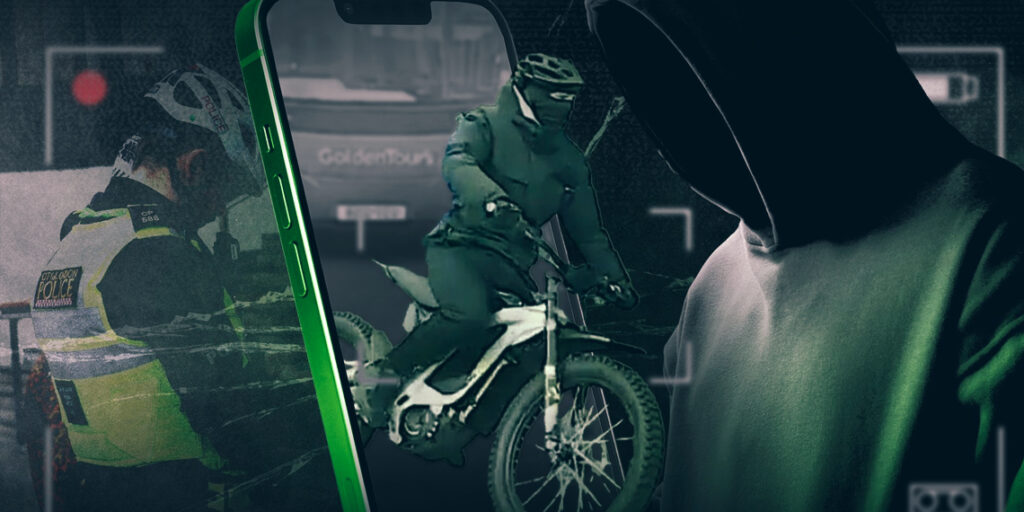City streets are becoming battlegrounds as police ramp up efforts to clamp down on illegal e-scooters and high-powered e-bikes amid a sharp rise in crimes linked to these vehicles.
Officers in London, armed with bicycles, are seizing non-compliant e-vehicles, with hundreds already confiscated and sent for destruction.
Policing the Streets: E-Scooter and E-Bike Seizures
In a recent patrol, officers David Parker and Jake Dean swiftly intercepted an e-scooter illegally ridden on a pavement near Liverpool Street Station.
Under UK law, privately owned e-scooters are prohibited on public roads. The seized scooter was promptly taken to a secure location for disposal.
Their next target was a powerful e-bike capable of exceeding the legal speed limit of 15.5 mph. Such vehicles, increasingly common, have become a focus for police due to their use in various criminal activities.
City of London Police Sergeant Stu Ford, who relaunched the force’s bike unit 18 months ago, says over 400 e-vehicles have been confiscated since then.
These include bikes and scooters used by commuters, delivery riders, and even high-flying professionals unaware of the legal restrictions. However, Ford emphasises that these vehicles are “also being used for all sorts of criminality.”
A Rapidly Escalating Problem
Data obtained by Sky News reveals a staggering 732% increase in crimes involving e-scooters and e-bikes over the past five years.
In 2023/24 alone, more than 11,000 offences, ranging from theft and robbery to violent and sexual crimes, were linked to these vehicles across England and Wales.
Criminals favour e-bikes and e-scooters due to their affordability—models can cost under £1,000—and their ability to evade automatic number plate recognition (ANPR) systems.
Shocking Cases Highlight Danger
One notable incident in North Wales involved a couple pursued by two males on an e-bike, one wielding a knife. Other cases include robberies where victims were threatened with machetes or attacked for their vehicles.
In London, Metropolitan Police data shows 352 robberies last year were committed by suspects on e-bikes, a 40% increase from 2022/23. The figures highlight how these vehicles are being exploited by criminals, particularly for phone snatching.
The Legal Landscape
The laws surrounding e-vehicles are clear: privately owned e-scooters are banned from public spaces, while e-bikes must adhere to strict regulations.
Legal e-bikes must be pedal-assisted, with a maximum speed of 15.5 mph and power output of no more than 250 watts. Non-compliant vehicles are classified as motorbikes or mopeds, requiring registration, insurance, and a licence.
Police have the authority to seize illegal e-scooters and e-bikes under Section 1658A of the Road Traffic Act 1988. Offenders risk criminal prosecution, six penalty points, and the loss of their vehicles.
Growing Concerns and Police Action
The true extent of the problem is likely understated, as major forces like the Metropolitan Police and West Midlands Police were unable to supply full data.
Nonetheless, the rise in crime is evident, with Sgt Ford acknowledging that “phone snatchers are getting very good at what they do.”
As e-vehicles become more accessible, authorities face mounting pressure to curb their misuse while balancing their potential benefits for urban transport. For now, the streets remain a hotbed of tension between convenience and compliance.


